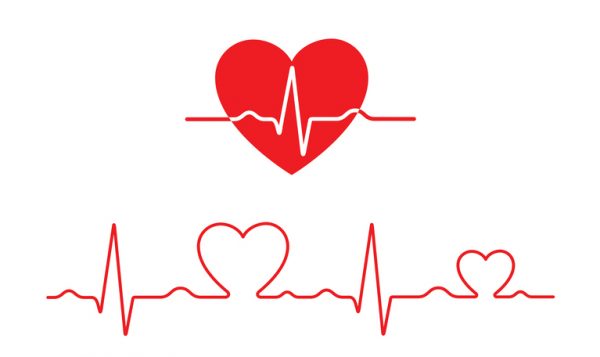
We’re facing a “new normal” as we navigate our lives during Covid-19. It’s critical to take precautions, like social distancing and wearing masks. It’s just as important not to practice medical distancing.
Covid-19 has brought new challenges to our lives, particularly for those with chronic illnesses. In fact, the American Heart Association warns that the Covid-19 pandemic has led many individuals to delay cardiac care that can cause health emergencies.

Behavioral Health, Interoperability and eConsent: Meeting the Demands of CMS Final Rule Compliance
In a webinar on April 16 at 1pm ET, Aneesh Chopra will moderate a discussion with executives from DocuSign, Velatura, and behavioral health providers on eConsent, health information exchange and compliance with the CMS Final Rule on interoperability.
Now, more than ever, it is critical to stay in close contact with your doctors if you have a chronic condition. I have been one of the more than five million Americans impacted by heart valve disease each year, including 1.5 million who struggle with the most common form of valvular disorder – aortic stenosis. Receiving a diagnosis of heart valve disease can make patients feel anxious, scared and alone.
When I was diagnosed with aortic stenosis in 2005, I quickly realized that my path to care would be extremely confusing. I didn’t know who to trust. I didn’t know what was wrong with my heart. But I did know it was life-threatening.
After advocating for myself throughout the process and finding a medical team I can trust, today, I’m not only “surviving” after heart surgery, I am “thriving,” and encourage patients to do the same
Insights from a recent survey of heart valve patients and caregivers on their experiences suggest that delaying care for heart valve disease, especially during Covid-19, can be dangerous and fatal.

A Deep-dive Into Specialty Pharma
A specialty drug is a class of prescription medications used to treat complex, chronic or rare medical conditions. Although this classification was originally intended to define the treatment of rare, also termed “orphan” diseases, affecting fewer than 200,000 people in the US, more recently, specialty drugs have emerged as the cornerstone of treatment for chronic and complex diseases such as cancer, autoimmune conditions, diabetes, hepatitis C, and HIV/AIDS.
Importance of Seeking Treatment Early
Specifically, we’ve learned that heart valve patients know it’s important to seek care early. In fact, 87 percent of patients consider the disease a condition that worsens over time. This is critical as 50 percent of patients with severe aortic stenosis who go untreated do not survive more than two years after the onset of symptoms.
The survey also revealed that patients are seeking treatments that keep them moving, whether it’s an exercise class or simply a walk in the park with their grandchildren. Nearly half (49 percent) of heart valve patients surveyed confirmed that a quick return to an active lifestyle is a key factor in making treatment decisions.
Covid-19 and the Heart Valve Patient Journey
The additional concerns due to the pandemic mean it’s critical for heart valve patients, their families and friends to take a proactive role in managing their treatment decisions so they can get back to doing what they love.
When it comes to seeking treatment, during the Covid-19 pandemic, spending less time in the hospital has taken on a new meaning. For heart valve patients who cannot and should not ignore treatment until a later date, I encourage them to consider the precautionary methods hospitals are taking and to explore traditional and minimally-invasive options. In fact, I recently spoke with a doctor about how minimally-invasive treatment options like transcatheter aortic valve replacement (TAVR) could be a good option for some patients because patients typically stay in the hospital for shorter periods of time. [Editor’s Note: The author manages Heart-Valve-Surgery.com, which is a HONcode-certified website that is sponsored by 40+ cardiac centers and medical companies that support its patient advocacy and educational initiatives.]
Building a Better Doctor-Patient Dialogue
Because of the challenges, I faced during my diagnosis, I decided to become an empowered patient myself and advocate for others to overcome the gap that exists between receiving a diagnosis and finding the right treatment option.
For me, finding the right cardiologist who would take the time to help me find the right treatment empowered me to make my life-changing decision to move forward with heart valve surgery. I am not alone in this, as we found 90 percent of respondents, who identified as heart valve patients are most influenced by conversations with their doctor when making treatment decisions. This was more than any other factor, including conducting online research (55 percent) and conversations with family or friends (28 percent).
I also encourage patients to feel comfortable seeking a second opinion. Patients have many choices these days for heart valve therapy. Being an informed patient and forming a collaboration between you and your medical team is key to selecting a treatment option that suits your needs and your life.
Right now, there is a trend in medicine to encourage individuals to be “active patients” and to advocate during the treatment selection process. In our community, we know patients want that role and need the educational resources to make it happen. When patients feel empowered to take the next step and make informed choices about their care, we see an accelerated return to active living.
You only have one heart. Getting the best care and protecting heart health remains our goal – even as we all navigate the “new normal” of Covid-19 together.
Photo: hudiemm, Getty Images
Adam Pick is a heart valve patient, patient advocate and author of The Patient's Guide To Heart Valve Surgery. In 2006, Adam founded Heart-Valve-Surgery.com to educate and to empower patients from diagnosis through recovery. Heart-Valve-Surgery.com (HVS) and Medtronic collaborated to launch the Active Living Awareness Initiative, providing resources, support and educational materials for heart valve patients.












